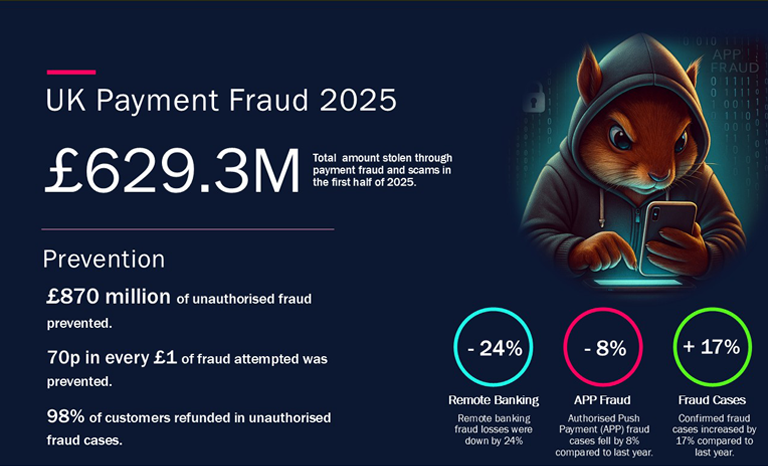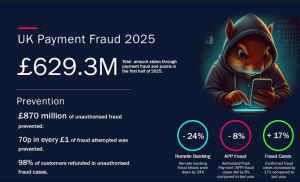News & Resources
Key Insights from the UK Finance Half Year Fraud Report 2025
Fraud remains one of the biggest threats to the UK’s financial sector. The latest UK Finance Fraud Report for the...
Read MoreAutumn Compliance Checklist: What Payment and E-Money Firms Need to Do Before Year-End
With year-end approaching, autumn is a natural time for payments and e-money firms to evaluate their compliance priorities, review frameworks,...
Read MoreNew UK Payments Infrastructure Strategy Outlines Key Outcomes for the Future of Retail Payments
The Payments Vision Delivery Committee (PVDC) — which includes HM Treasury, the Bank of England, the Financial Conduct Authority (FCA),...
Read MoreChancellor launches new Scale-up Unit to accelerate growth for financial services firms
The UK Government has announced new measures to promote the growth of innovative financial services firms, including the launch of...
Read MoreWhat the FCA’s latest strategy means for payments and e-money firms
The FCA’s recent speech at PIMFA’s 2025 Compliance Conference focused heavily on investment and advice sectors — but beneath the...
Read MoreDraft Money Laundering Regulations Published for Technical Consultation
Following a public consultation on ‘Improving the Effectiveness of the Money Laundering Regulations’, the government is bringing forward targeted amendments...
Read MoreKey Insights from the UK Finance Half Year Fraud Report 2025
Autumn Compliance Checklist: What Payment and E-Money Firms Need to Do Before Year-End
New UK Payments Infrastructure Strategy Outlines Key Outcomes for the Future of Retail Payments
Chancellor launches new Scale-up Unit to accelerate growth for financial services firms
What the FCA’s latest strategy means for payments and e-money firms
Draft Money Laundering Regulations Published for Technical Consultation
FCA Proposes Greater Flexibility on Contactless Payment Limits
HMT publish consultation on proposed approach to payment systems regulation
Interview with Nigel Reed: Understanding the FCA’s Changes to Safeguarding
Safeguarding Regime Changes: The Resolution Pack
Resources
The registration process for SEMIs is cheaper and more straightforward than authorisation for Authorised E-Money Institutions (AEMIs), however there are additional restrictions placed on the activities of SEMIs.
The FCA would require similar information to an AEMI application but in less detail and would pay close attention to the skills and experience of the business’ senior team.
- A SEMI’s average outstanding e-money must never exceed €5 million.
- There are no passporting rights. SEMI’s products can only be offered within the UK.
- SEMIs can provide unrelated payment services but only if the average monthly total of payment transactions does not exceed €3 million, on a rolling 12 month basis.
To determine their capital requirements, SEMIs are split into two categories. For those whose average outstanding e-money is less than €500,000 and who do not predict their average to reach that point, there is no minimum capital requirement.
For those whose average falls above that limit, there is a minimum capital requirement of 2% of their average outstanding e-money.
The FCA charge application fees as well as on-going supervision fees for authorised entities.
In addition, there are minimum requirements for on-going capital for authorised firms, although not all SEMIs will be required to meet minimum capital requirements (see above).
















